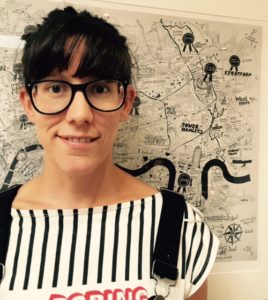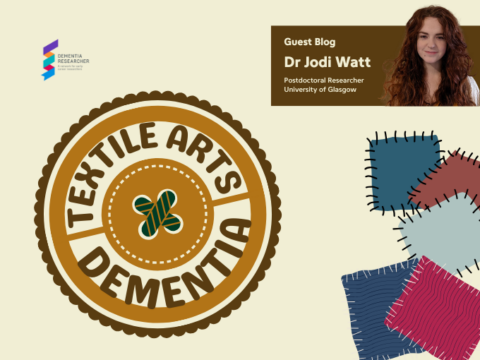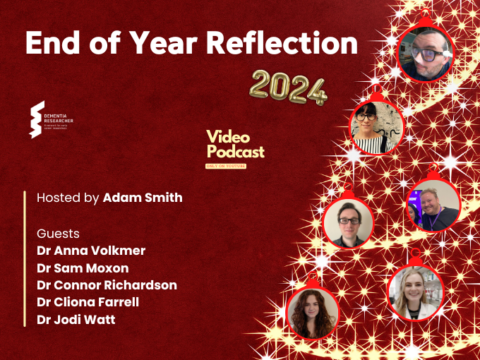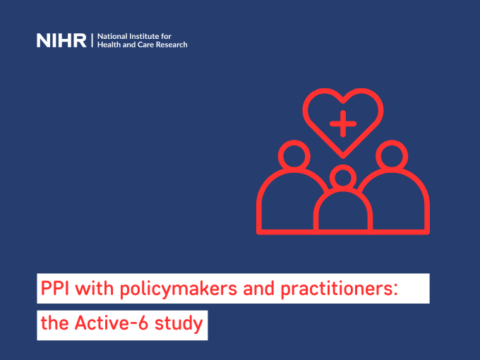As a novice researcher I embarked on a research career highly motivated to gather as much knowledge, advice and wisdom from others as I could. This included searching for guidance on how to do Patient and Public Involvement (PPI). My NIHR-Doctoral Research Fellowship application had included a section on PPI, and I had a plan to work with people with dementia and their families to do this. So, I started out on a quest for information on how to do PPI with people with communication and cognitive difficulties.
The initial phase of my quest provided some really helpful starting points. I sought guidance from official organisations such as INVOVLE, which provided lots of practical information on how to set up a steering committee for example, or the terms of reference for these groups. INVOLVE highlighted the breadth of types of things people could collaborate on and how. It sounds silly, but one of the most useful things I got from INVOVLE is that they emphasise the added value of PPI. This includes making sure that people are appropriately reimbursed. Being able to reimburse travel, buy refreshments and pay people for their time is important. The cost calculator on the INVOLVE website makes it inarguable. By making provision for this is become more important. If we pay someone for their time, it must be valuable.
 The one thing I could not find was guidance on how to do PPI work with people with any type of communication difficulty. I attended a training meeting looking for guidance on this type of PPI work, expecting to be pointed to some very obvious resource I had not yet heard about. But what I received was doubting looks and comments suggesting it just wasn’t do-able. In fact I was at one point advised that it might be a little too difficult.
The one thing I could not find was guidance on how to do PPI work with people with any type of communication difficulty. I attended a training meeting looking for guidance on this type of PPI work, expecting to be pointed to some very obvious resource I had not yet heard about. But what I received was doubting looks and comments suggesting it just wasn’t do-able. In fact I was at one point advised that it might be a little too difficult.
After this I sought guidance closer to home, within the speech and language therapy community. I realised that there might be people right on my doorstep who know aboput communication, who could offer me more bespoke guidance. I approached a speech and language therapist who had been instrumental in establishing a well know third sector organisation for people with stroke related communication difficulties and asked her for individualised guidance and advice on this type of work. She and I met three time per annum over the course of my PhD and discussed my PPI work step by step as it evolved over the course of my project.
I invited four couples where one person had a language led dementia (primary progressive aphasia), and their partners to my steering group. It was extremely important to include their partners, given the communication support they could offer. Secondly, their partners were also living with the diagnosis and could provide an additional insight for the study. I also invited two professionals, who were interested in the project, but who could support the communication of other group members. The first port of call was to establish a set of group rules, outlining how we would communicate with one another. We pooled ideas from group members, including use of communication cards to ask questions, slow down, ask for repetitions and so forth. All group members agreed to use the cards. We needed to go at the same pace, together. I circulated agendas in advance of every meeting and discussed topics with people individually before meeting as a group. This meant people had time to plan their answers. At every meeting we would recap on the work we had done to date. The following provides a list of key tips and hints collated from the group:
- Circulating an agenda and minutes, developed in an accessible way made people feel valued
- Taking a photo of the group members at every meeting and including these in the minutes and agendas provide consistency.
- Presenting a summary of the project, on slides, at the start of evert meeting made sure we were all on the same page.
- Using the same images and layout throughout (slides, agenda, minutes) facilitated comprehension.
- Meeting face to face, sitting in an open circle and having time for refreshments before we started work was essential to establishing rapport and supporting communication at every stage of the project.
- When we discussed topics, we all agreed that the floor would be opened to people with PPA first, before others. This ensured that their voices were heard.
- We planned out work on the project together- by voting using post it notes and placing them on a timeline chart. This meant the group owned the work we did together.
- On occasion we planned to bring things to the group to support a brainstorm, and we did this using photos/objects/drawing.
- Often we would draw large brainstorms together in the meeting- meaning that people could understand the conversation as it happened, and write things down or draw them if they needed to do so to support communication.
- We agreed to video record all our meetings, so that no one needed to spend time writing minutes and we could all focus on talking.
I have now started to meet more researchers who are finding this challenging, and want to share the resources, ideas and methods for PPI that they have often coproduced. We are in the process of putting together some resources to this end, so do watch this space. Working with people with communication and cognitive difficulties is possible, with the right strategies in place to support the process!
Author
Dr Anna Volkmer is a Speech and Language Therapist and researcher in Language and Cognition, Department of Psychology and Language Sciences, University College London. Anna is researching Speech and language therapy interventions in language led dementia and was once voted scariest speech and language therapist (even her children agree).

 Print This Post
Print This Post





